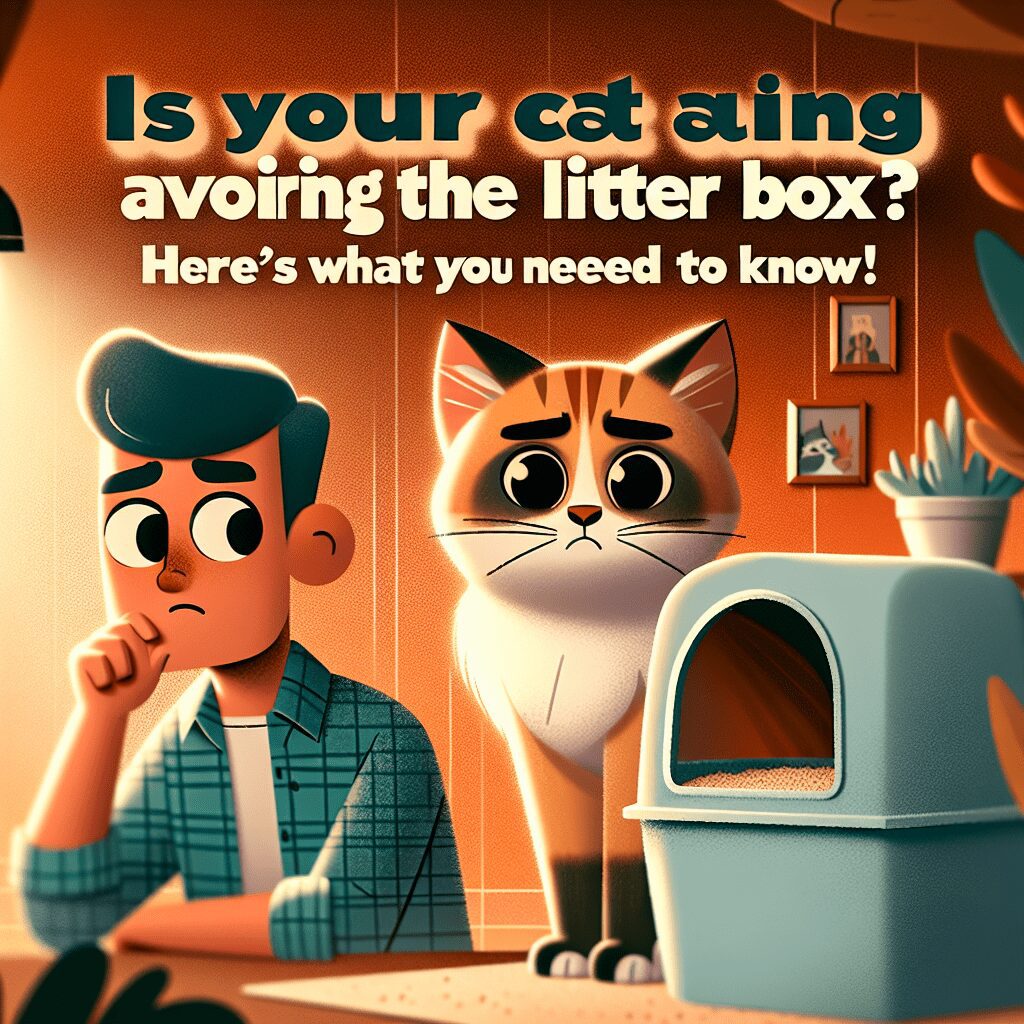Experiencing problems with your cat avoiding the litter box can be incredibly frustrating. It can also make you feel concerned about your furry friend. Understanding why this behavior occurs is essential in addressing the problem effectively. This article explores various aspects related to litter box avoidance, offering practical solutions for cat owners.
Overview: Understanding Litter Box Avoidance
Cats are, by nature, creatures of habit. The litter box is meant to be a safe space for them to relieve themselves. When they suddenly avoid the litter box, it often signals an underlying issue. This issue could be medical, behavioral, or related to litter box maintenance. It’s crucial to explore these areas systematically to find a suitable resolution. Keeping an open and observant stance while interacting with your pet can reveal much about their needs.
Why Cats Avoid the Litter Box
Understanding the reasons your cat may avoid using the litter box can significantly aid in addressing the issue. Here are some common reasons:
- Medical Issues: Conditions like urinary tract infections or bladder stones can cause pain when urinating, leading a cat to seek an alternative location.
- Litter Preference: Cats can be picky about the type of litter used. They may dislike the texture, scent, or clumping ability.
- Litter Box Location: If the box is in a noisy or high-traffic area, it may deter your cat from using it.
- Box Cleanliness: A dirty box is often a significant deterrent. Regular cleaning is key to ensuring your cat’s comfort.
- Stress or Anxiety: Changes in the household, such as moving, new pets, or loud noises, can cause stress, resulting in avoidance behavior.
Who is Affected by This Issue?
Litter box issues can affect any cat owner, regardless of experience or breed. Whether you have a single cat or multiple, understanding and addressing litter box avoidance is essential for a harmonious home. This challenge impacts not just the cat’s well-being but also the owner’s peace of mind. Engaging with your pet and taking their needs seriously should always come first.
What is the Impact of Litter Box Avoidance?
The impact of a cat avoiding the litter box transcends mere mess. Here are some consequences owners may face:
-
Behavioral Problems: Chronic avoidance may lead to more severe behavioral issues, including aggression or withdrawal.
-
Health Risks: Prolonged avoidance could lead to severe medical conditions that require expensive vet visits.
-
Increased Stress Levels: Owners often feel stressed or frustrated, which can harm both the owner and the pet’s mental health.
-
Damage to Property: Urination outside the box can lead to staining and odors, necessitating additional cleaning and maintenance.
- Decreased Bonding: If a cat feels anxious or upset due to litter box issues, it might inhibit the bonding process between the pet and the owner.
Where Should the Litter Box Be Placed?
The litter box’s location is vital for your cat’s comfort. Here are some strategic placements to consider:
-
Quiet Areas: Avoid noisy or bustling rooms where your cat might feel stressed. A quiet corner works well.
-
Multiple Boxes: For multi-cat households, placing one litter box per cat plus one extra can lessen competition for space.
-
Avoid Obstructions: Ensure the box is easily accessible, especially for elderly or disabled cats.
-
Away from Food and Water: Cats prefer to keep their eating and elimination areas separate. Place the box away from their food and water bowls.
- Consistent Location: If your cat shows a preference for a particular location, try to maintain consistency when relocating the box.
When to Seek Veterinary Help
If your cat continues to avoid the litter box despite your efforts to make it appealing and comfortable, consulting a veterinarian is crucial. Here are situations that warrant immediate attention:
-
Frequent Urination or Straining: This signals potential medical issues requiring urgent care.
-
Blood in Urine: A definite sign that something is wrong and needs professional assessment.
-
Sudden Changes in Behavior: If your cat suddenly avoids the litter box without any apparent cause, seek medical advice.
-
Loss of Appetite or Lethargy: These symptoms can indicate a broader health issue.
- Prolonged avoidance of the box: If avoidance continues for more than a few days, it’s usually better to consult a vet.
How to Use Positive Reinforcement
Changing your cat’s litter box habits can be successfully achieved with positive reinforcement. Here are some effective strategies:
-
Treats and Praise: Reward your cat with treats and affection when they use the litter box to encourage this behavior.
-
Reinforcement of Good Behavior: Be patient and observe your cat. If they use the litter box, show them you’re proud.
-
Create a Routine: Cats thrive on routine. Keep a consistent schedule for feeding and litter box cleaning.
-
Comfort Items: Place a familiar blanket or toy near or in the litter box to create a secure environment.
- Gradual Introduction: If you change the litter or box, introduce the new items gradually to avoid alarming your cat.
Pros and Cons of Litter Box Additives
Litter box additives, like attractants or deodorizing agents, can offer benefits but may also have downsides. Here’s a balanced view:
Pros:
- Increased Attractiveness: Some additives can make the litter box more appealing to your cat.
- Reduced Odor: Many products neutralize odors, keeping your home smelling fresh.
- Enhanced Clumping: Certain additives improve clumping, simplifying cleaning.
Cons:
- Sensitivity: Some cats may react to additives, leading to further avoidance.
- Cost: Regularly purchasing additives can add unnecessary expenses.
- Overdependence: Relying solely on additives may prevent addressing the root of the issue.
Similar Products to Consider
When tackling litter box avoidance, exploring alternative products can be helpful. Here are some popular choices:
-
Self-Cleaning Litter Boxes: Reduce the hassle of cleaning and maintain a fresh environment.
-
Different Litter Types: Experiment with clay, crystal, or biodegradable litter. Some cats prefer specific types.
-
Litter Box Liners: Make cleaning easier while protecting the box from messes.
-
Scented Litter Options: Some cats prefer a subtle scent, helping mask odors without overwhelming smells.
- Anti-Anxiety Products: Consider pheromone diffusers to minimize stress levels that could affect litter box behavior.
FAQs
Q: Why is my cat suddenly avoiding the litter box?
A: There could be various reasons, including medical issues, litter preferences, or stressors in their environment.
Q: How often should I clean the litter box?
A: Aim to scoop daily and do a thorough cleaning with soap and water weekly.
Q: What type of litter is best for my cat?
A: Every cat has different preferences. Try several types to see which your cat likes most.
Q: Can behavioral issues cause litter box avoidance?
A: Yes, stress or anxiety can lead to changes in behavior, including avoiding the litter box.
Q: When should I take my cat to the vet regarding litter box issues?
A: Seek veterinary help if avoidance persists, or if you notice blood in urine or other concerning symptoms.
Disclaimer: As an Amazon Associate, I earn from qualifying purchases. I may earn a commission from qualifying purchases as an affiliate. Please note that I only recommend products I believe will provide value to my readers.









